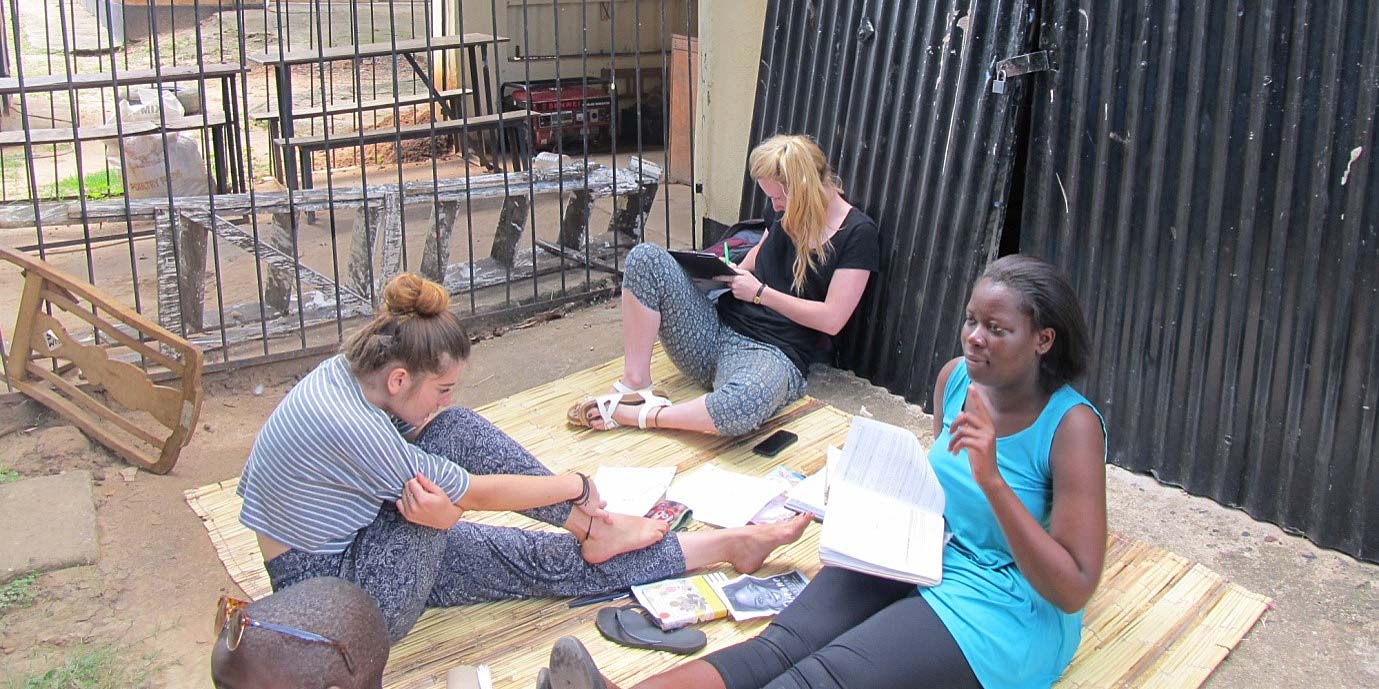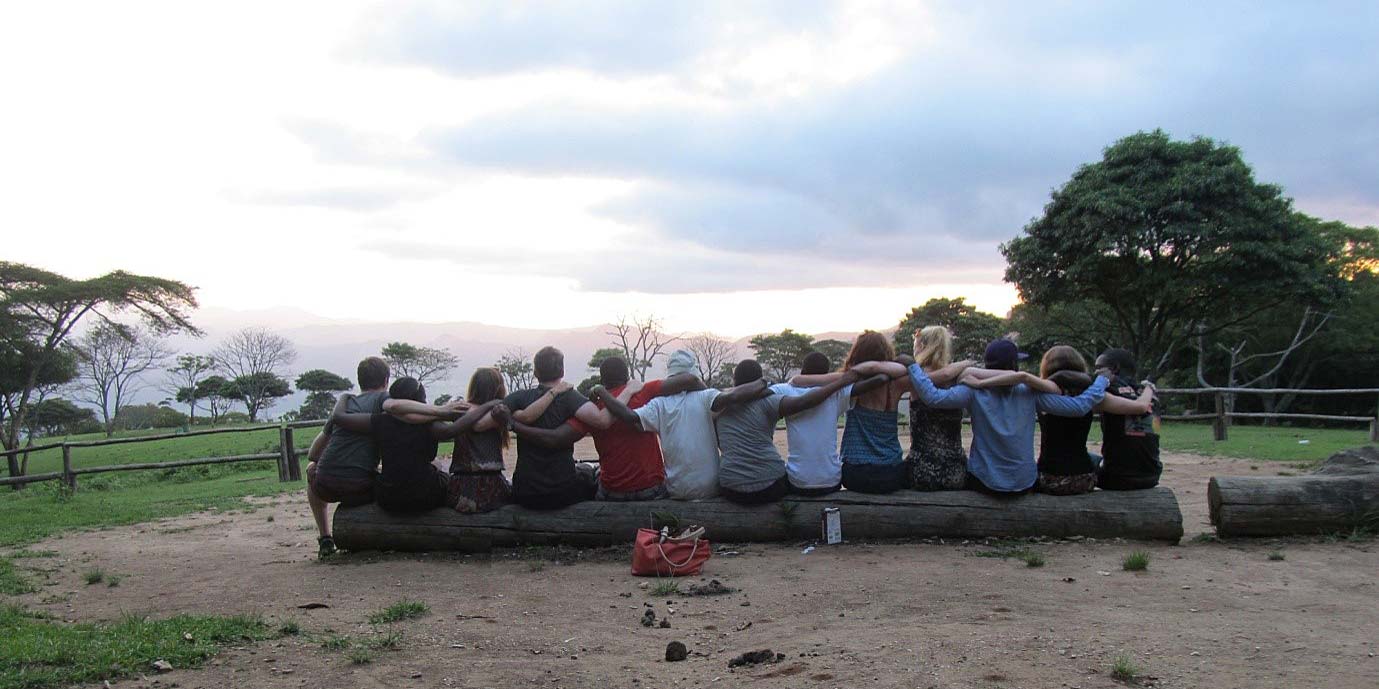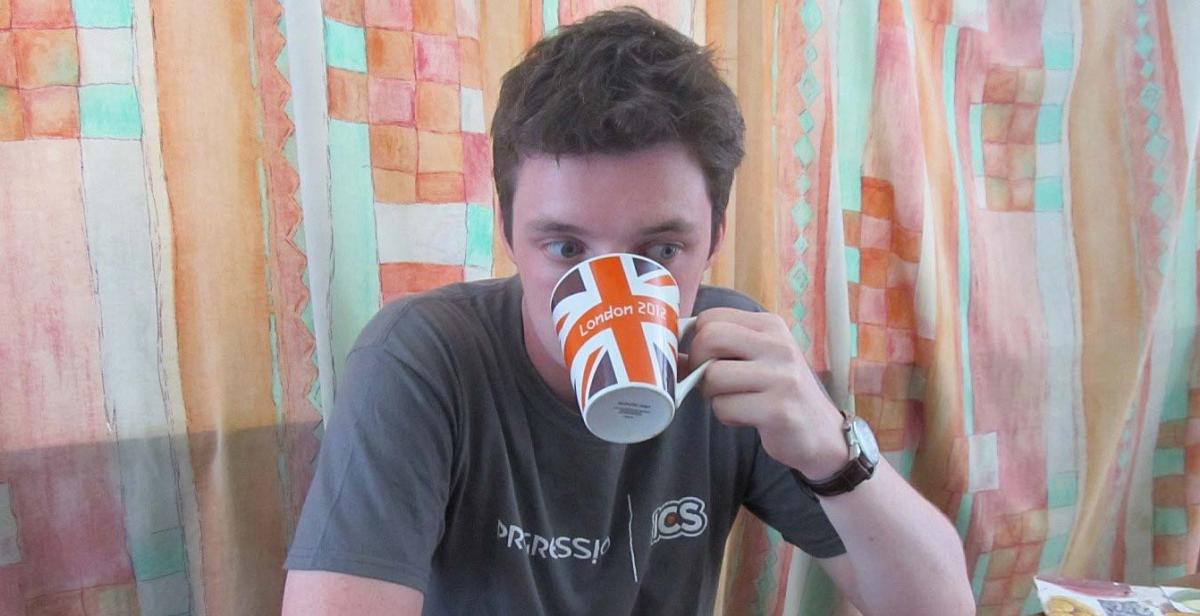The Rowa Runners are 12 volunteers from two vastly different cultures. In different countries there are different ways that we express ourselves. When two of these cultures mix, it’s common for the two sides to view each other as strange. There are a lot of blogs on this website that explore how non-British cultures are weird, but none on how your culture is weird to us! I got together with some of my fellow Zimbabwean volunteers and we’re going to tell you who’s truly weird! (You).
Tea is a well grown product here in Zimbabwe and I enjoy a cup every now and then. I see it as an ordinary drink to be enjoyed once in a while. To our British colleagues however, tea is not only a drink but a source of power to kick start the morning. You can have anything you want in a day but just make sure that Peter has his morning tea - or else! The closest equivalent for most Zimbabweans is a hearty meal of sadza - we kick start our days with carbs not caffeine. Locals can go the whole day without having a sip of tea but not so for our friends from the UK.
I asked my colleague Faa what weird things she had noticed. She was surprised that you guys choose to shower in the evening. “I don’t know if it’s because of the time difference between our countries or what, but we don’t seem to have the same bathing time taste. Could it be the scientific reason? Is it best to bath at night, when the body cells are more active, or it is just their weird culture?” Personally, I think it may be thanks to their host families. Zimbabwean families are bigger than British ones. This leaves less time to shower in the morning - it’s very kind of the UK volunteers to put their host families first.
Next I turned to team mate TK. He noticed how, though our British friends are learning our culture, they definitely haven’t grasped it all in one go. A prime example is the sitting positions that we ascribe to in our local culture. The UK volunteers tend to sit in whatever way that is most comfortable to them, but for the locals (especially in rural areas) there are certain ascribed sitting positons for both males and females. Women usually sit on the floor, legs straight out and crossed, while men sit on chairs with legs spread. Though our colleagues are learning to sit in the “acceptable” local positions, there are times that they just forget and revert to their natural sitting positions.
You may be thinking it’s weird that women have to sit on the floor, but maybe I can persuade you it’s actually a good thing. Most of the time in our community sessions, sitting just happens without a lot of drama, but on one fateful day Team Leader Grace decided to make it more interesting. After finding her seat and sitting happily for a few minutes, she suddenly fell to the ground. The seat fell right through! Maybe this is one of the reasons why women should sit on the floor - they can’t be trusted not to break chairs. Just kidding, we later found out that the chair was already broken. Luckily for us she was not hurt in any way so we just laughed it off. Next time maybe she’ll make more of an effort to follow local customs!

When you greet someone, do you do it when they are still far away or do you wait until they’re nearby? This is debatable and personal, but we’ve noticed the UK volunteers always yell “Hi” across the room. To us nationals, it’s really weird; honestly, how can you greet someone who is far away, what if they don’t realise you’re talking to them? At first I often got surprised by that though we have gotten used to it. But we do wonder what the people of Rowa think about it. It’s our local custom to sit down before we greet each other, but our British colleagues always say “makidini” to them as they walk past. This usually results in everyone greeting each other twice within about 10 minutes! Absolute madness.
British society is a lot more secular than Zimbabwe - to most of us nationals, church, pastor and prayer form a central part of our lives. It was actually enlightening to see how people can survive without praying or going to church. Here in Zimbabwe almost everyone prays for almost everything; for a job, for food and even before every exam. Most of the UK volunteers have not been to church in ages (or indeed ever), but hopefully they’ll learn something from their newly busy Sundays.

It’s hard to apologise for the nationals. The reason behind that is not clear, maybe it’s because we have a lot of pride. If we don’t apologise quickly (after a day or two), chances are we’ll keep quiet forever. Our workmates, the Britons, are the direct opposite of this, they instantly apologise after they have wronged someone. Sometimes they’ll even apologise when they’re not in the wrong! In Zimbabwe it is common not to apologise to people younger than you, our British colleagues are indiscriminate with their apologies. With the UK volunteers you probably hear a lot more “I’m sorry” in a day than you have heard your whole life.
This is all we’ve noticed so far, but I’m sure in the two months we’ve all got left there’ll be more. Hopefully all you Brits reading this have now realised just how strange your culture is. But the most important thing to remember is that even though our cultures may be different (and we both think each other odd), it’s entirely possible to work well together. Sometimes even pointing out the differences can bring you closer together!
Written by ICS volunteer Ronnie Mukwasamombe



